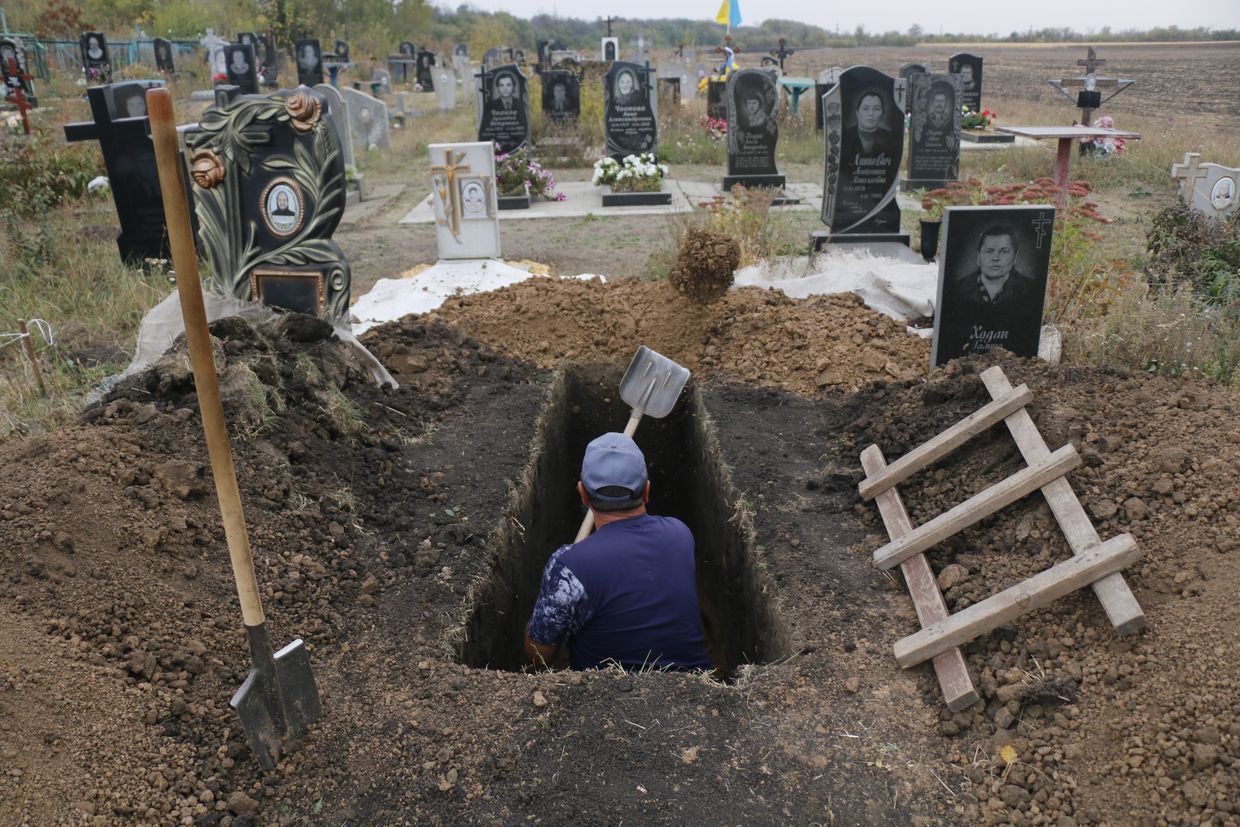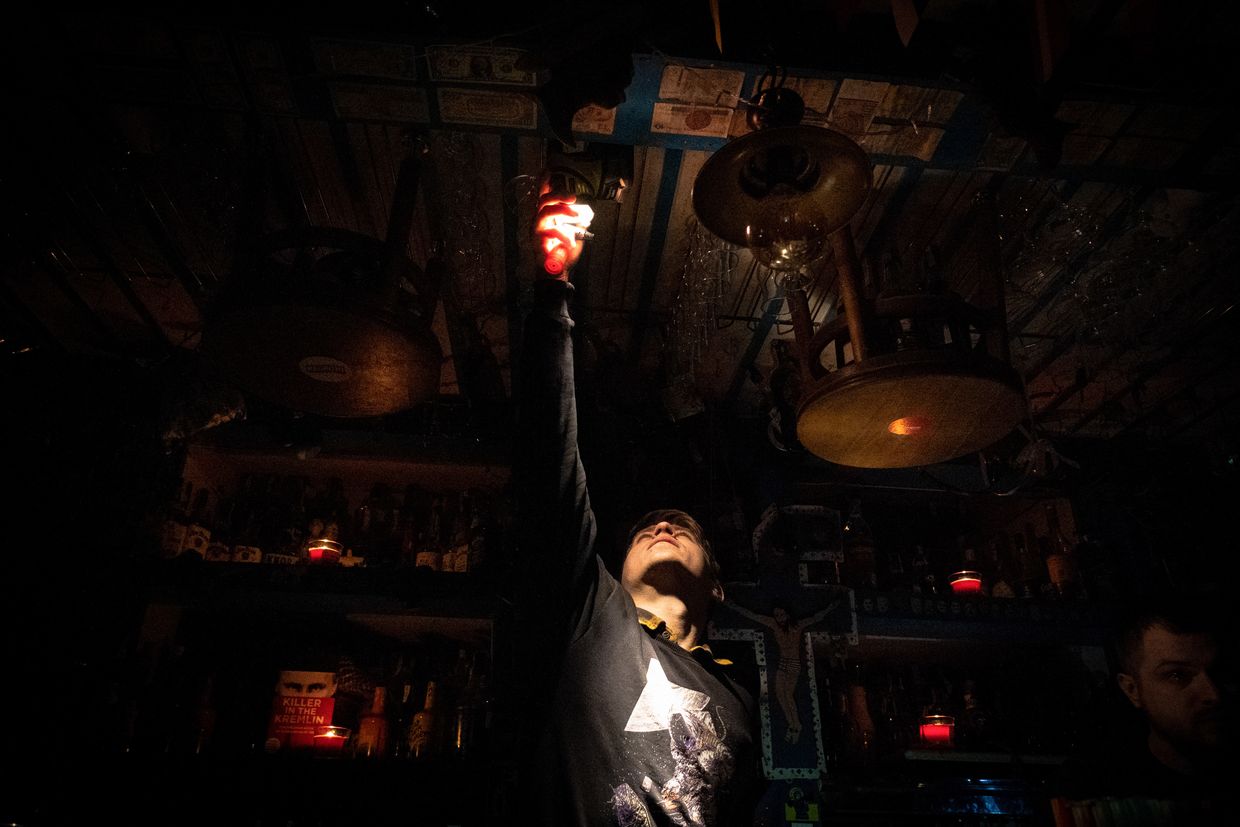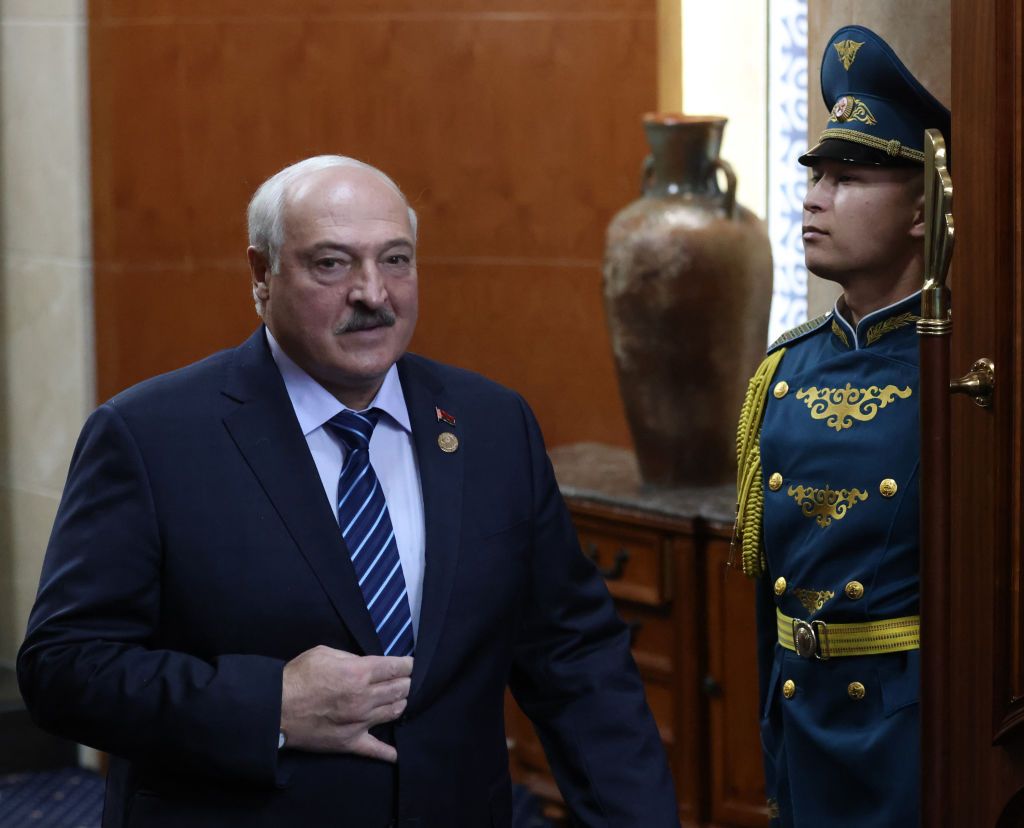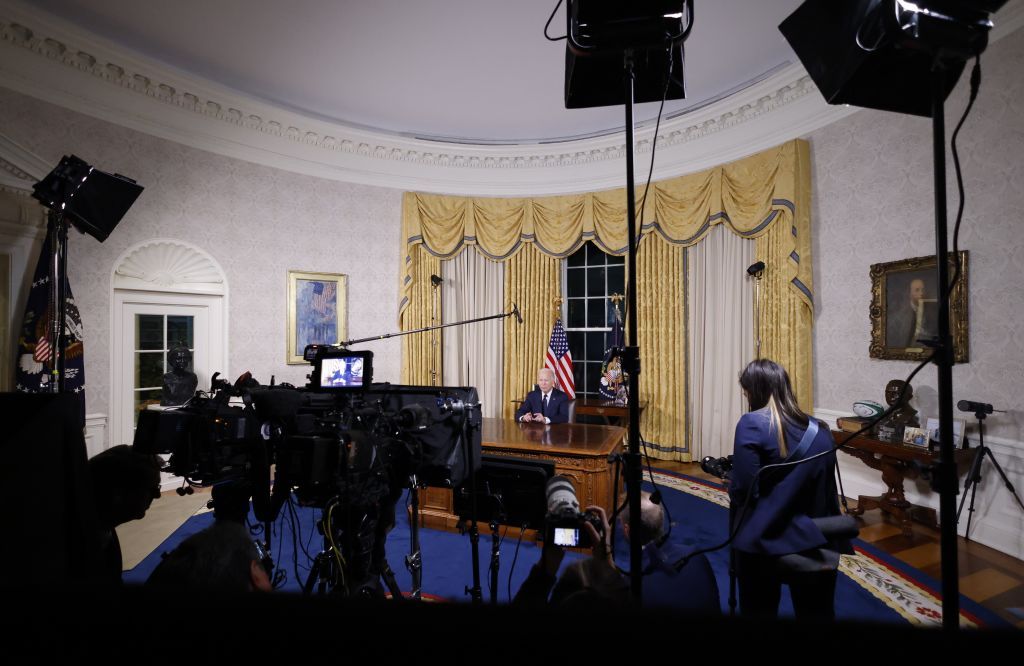Ukraine war latest: All 59 killed in Hroza missile attack were civilians, UN reports
Key developments on Oct. 31:
- Explosion reported at Russian military factory 2,000 kilometers west of Ukraine
- Russian attacks kill 2, injure 25 in Ukraine
- UN report: All 59 killed in Hroza missile attack were civilians
- Border Guards: Russia appears to have withdrawn most troops from Belarus
- Biden cabinet secretaries make case for Ukraine aid in Senate
A report by the UN High Commissioner for Human Rights (OHCHR) released on Oct. 31 found that all 59 people killed in Russia's missile attack on the village of Hroza were civilians.
The report summarized the UN's investigation into the Oct. 5 strike on a funeral reception in the Kharkiv Oblast village.
In addition to confirming that those killed were all civilians, the report also said that there are "reasonable grounds to believe that there were no military personnel or any other legitimate military target present at or in proximity to the reception at the cafe that followed the funeral held at the cemetery outside the village."
As a result, the report said there are two possible conclusions- that Russia "failed to do everything feasible to verify that the target to be attacked was a military objective," or that it "deliberately targeted civilians."
On Oct. 5, a funeral reception was held in Hroza for the reburial of a Ukrainian soldier. A missile (likely an Iskander ballistic missile) struck the cafe where 63 people were gathered for the memorial lunch. As a result, 36 women, 22 men, and an eight-year-old boy were killed, and another five were injured.
Russia's Permanent Representative to the United Nations, Vasily Nebenzya, justified the missile strike, claiming that it was the funeral of "a high-ranking Ukrainian nationalist" and that a concentration of soldiers in any place is a "legitimate target."
It was the deadliest attack against civilians so far in 2023.
According to the Security Service of Ukraine (SBU), two Ukrainian collaborators, locals of Kharkiv Oblast, assisted Russian forces with the attack.
The UN investigation entailed a fact-finding mission to Hroza, and interviews with 35 people, as well as the analysis of open-source information and consultation with independent military experts.
Russia hits energy facility in front-line region, causing blackouts
Russian forces struck a thermal power plant in one of Ukraine’s front-line regions late on Oct. 30, the country’s largest private energy company DTEK reported on Oct. 31.
The company wrote that the attack significantly damaged the DTEK facility's equipment, causing electricity and water supply cut-offs in a nearby settlement. No casualties were reported.
DTEK did not specify which region was targeted.
Meanwhile, Interior Minister Ihor Klymenko said that Russian troops shelled an energy facility in Donetsk Oblast on the evening of Oct. 30.
DTEK added that its employees were working to restore residents' energy and water supply.
Russia has repeatedly attacked critical infrastructure across Ukraine since early October 2022, killing dozens of people and causing mass power outages across the country.
Moscow has admitted that Ukraine's energy system is one of its primary targets. According to the Geneva Convention, attacking vital public infrastructure constitutes a war crime.
As Ukraine braces for the inevitable uptick in Russian strikes against the energy grid in winter, preparations are being made to mitigate the damage and defend critical infrastructure.
Explosion reported at Russian factory
An explosion occurred at one of Russia's largest military plants in the Perm Krai, Russian state-run news agency RIA Novosti reported on Oct. 31, citing emergency services.
The factory, located in the town of Solikamsk, produces explosives, among other things.
There were allegedly no people on the plant's territory at the time of the explosion, and the facility renewed its work shortly after, the enterprise's spokesperson told RIA Novosti.
The regional authorities said, as cited by RIA Novosti, that the explosions posed no threat to the civilian population of Solikamsk.
Meanwhile, Russian Telegram channel Baza cited Solikamsk residents saying that a pillar of smoke was seen over the plant and windows were shattered in some houses.
These claims couldn't be independently verified.
The Ural factory belongs to the Russian state-owned defense conglomerate Rostec, which Ukraine, the U.K., the EU, the U.S., Canada, Switzerland, Australia, Japan, and New Zealand have sanctioned.
Solikamsk lies some 2,000 kilometers northeast of the border with Ukraine.
Since the start of Russia's full-scale war against Ukraine, explosions have been recorded at many infrastructure sites inside Russia.
Russian attacks kill 2, injure 25 in past day
Russian attacks against Ukraine killed two civilian and wounded another 25 on Oct. 31, regional authorities reported.
Russia targeted a total of 12 Ukrainian regions — Poltava, Khmelnytskyi, Dnipropetrovsk, Kharkiv, Zaporizhzhia, Sumy, Chernihiv, Mykolaiv, Luhansk, Odesa, Kherson, and Donetsk. Casualties were reported in the last three regions.
The attacks hit residential districts, administrative buildings, a food company, a school, and a library, according to Prokudin.
Russian forces used artillery, mortars, Grad multiple-launch rocket systems, tanks, drones, and aviation to attack the southern region 98 times, the official added.
On the same day, one civilian was injured in Donetsk Oblast’s Zalizne near Horlivka, acting Governor Ihor Moroz said on Facebook. Casualties among civilians in the embattled Donetsk Oblast are a daily occurrence as Russia seeks to occupy the entire eastern region.
Russian troops struck a ship repair facility in the Odesa district early on Oct. 30, wounding four facility’s employees, according to the regional prosecutor’s office.
Russian troops struck Kherson on Oct. 31, causing a fire in a civilian car and killing its owner, Governor Oleksandr Prokudin reported.
Later the same day, Russia launched a missile attack against Kherson, wounding two employees of a transport facility, according to Prokudin.
The victims, a 34-year-old driver and a 58-year-old cleaner, were reportedly hospitalized following the strike. The transport facility’s warehouses and at least five vehicles were destroyed, the oblast governor said on Telegram.
Russian forces used a drone to strike an evacuation bus in Kherson Oblast, injuring two civilians, Ukraine's Southern Defense Forces reported on Telegram on Oct. 31.
The minibus was evacuating people from a village in Beryslav district near the Dnipro River. The region is frequently attacked by Russian forces that occupy the land on the east bank.
Border Guards: Russia appears to have withdrawn troops from Belarus
Russia appears to have withdrawn "all its units from the territory of Belarus," Andriy Demchenko, the spokesperson of Ukraine's State Border Guard Service, said on air on Oct. 31.
The units were withdrawn "as part of a rotation," but new units were not brought in.
There are still some members of the Russian Armed Forces remaining in Belarus, but these are predominantly military personnel who service Russian equipment left in the country, Demchenko said.
While the border guard is "actively monitoring" the area, the situation on the border is "fully under control" with no evidence that personnel or equipment are being moved toward Ukraine.
There are also currently "less than a thousand" Russian mercenaries in Belarus, Demchenko said, referring to Wagner Group fighters who came to the country to provide training to the Belarusian military in the summer of 2023.
Their presence in Belarus was part of a negotiated deal that ended the brief rebellion of the group's founder, Yevgeny Prigozhin, against Moscow in June.
The group's founder was killed in a plane crash in Russia's Tver Oblast on Aug. 23 under mysterious circumstances.
Wagner Group mercenaries, who were reportedly already leaving Belarus due to low pay, began to leave the country in convoys following news of Prigozhin's death, according to Ukraine's National Resistance Center.
Roughly 8,000 Wagner fighters were stationed in Belarus, and around 500 of these men have now returned to fight in Ukraine, the Ukrainian military believes.
Biden cabinet secretaries make case for Ukraine aid in Senate
U.S. Defense Secretary Lloyd Austin and Secretary of State Antony Blinken said that aid to Ukraine and Israel must be approved immediately during their Senate testimonies on Oct. 31.
The $105 billion funding bill that includes aid for both countries has been held up for weeks by infighting in the Republican-led House of Representatives.
Although the bill, which includes $61.4 billion in military aid to Ukraine, is likely to pass in the Senate, its fate is more unclear in the House.
Johnson and other Republicans in the House unveiled a $14.3 billion standalone spending bill only for Israel, Bloomberg reported earlier on Oct. 31. It also included cuts to the U.S.'s Internal Revenue Service (IRS), which would make it difficult to gain support from Democrats.
The White House responded by criticizing the proposed bill for "politicizing national security."
Blinken and Austin echoed that sentiment in their comments to the Senate, pushing Congress to take a broadly unified position and approve the full bill.
Failing to pass the bill would be construed as a failure to lead, Austin said, and could give the U.S.'s rivals a "reason to doubt America's resolve."
Senate Minority Leader Mitch McConnell, representing the Republican Party, has also tried to push his party to support new funding for Ukraine, leading to a potential conflict with Johnson and the Republicans in the House.
















